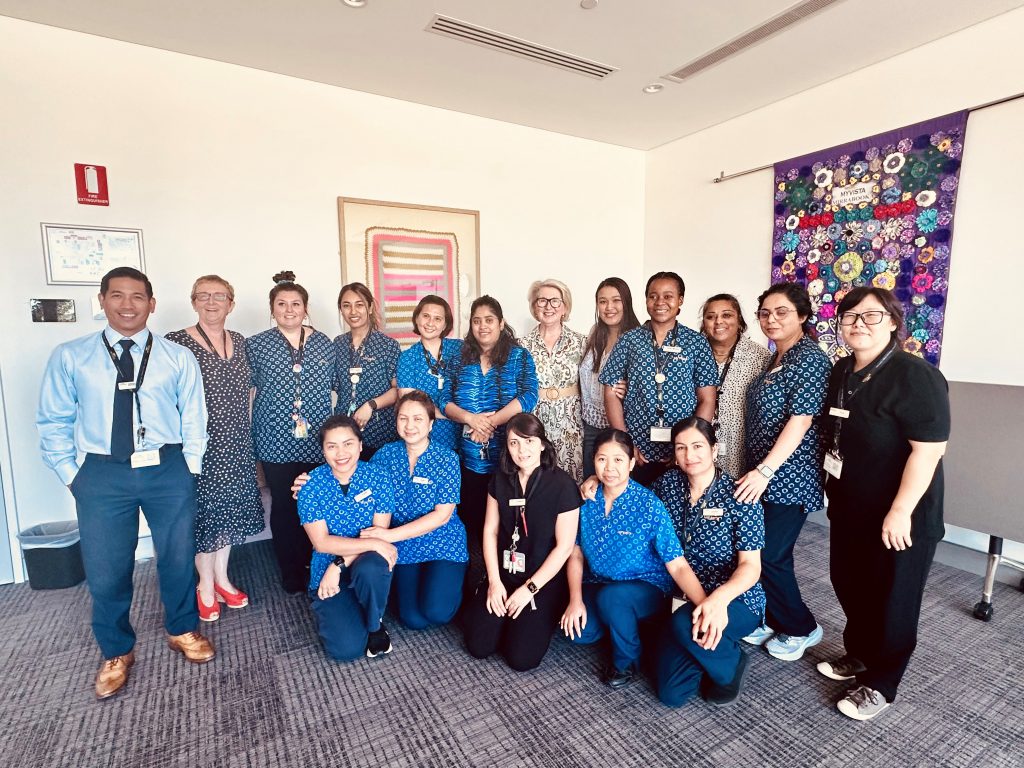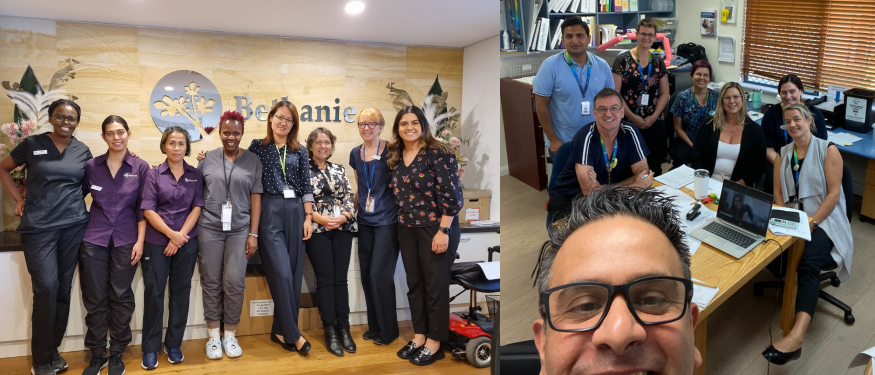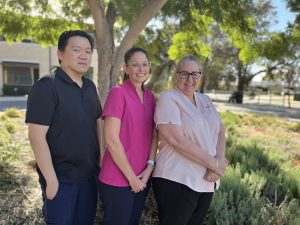Improving palliative care and end-of-life support for older Australians living in residential aged care homes (RACHs) is at the heart of a successful case coordinator pilot project, which has seen a significant uplift in honouring the preferences of residents.
In January 2023, WA Primary Health Alliance (WAPHA) began the pilot to employ four dedicated case coordinators across eight RACHs in WA. The pilot was established following a consultation forum in partnership with WA Department of Health where GPs identified the need for a dedicated role within RACHs for them to liaise with, co-ordinate case conferencing and engage in RACH quality improvement initiatives.
Over the last twelve months the coordinators have not only improved the quality of end-of-life care for residents but also provided support for loved ones, staff, and the wider system of care.
The project has had a significant impact in ensuring preferences and choice at end-of-life are being documented and understood. Since the pilot began, 97 per cent of residents were able to have their preferred place of death recorded, and 95.7 per cent had their preferences met.
“Ensuring preferences are recorded for individuals at end-of-life can help provide them with a sense of comfort and control. Likewise, for the family, witnessing their wishes being honoured can bring a profound sense of relief and reassurance, alleviating the burden of making difficult decisions and allowing them to focus on providing support and comfort.” – Bernadette Kenny – Executive General Manager Primary Care Innovation & Development, WAPHA.
Coordinators provide an important link between residents and their care teams with GPs involved in the residents’ care highlighting the improved efficiencies in identifying clinical priorities and addressing complex needs.

“Residents have been given the opportunity to participate in planning what matters to them, staff have been able to develop skills to support people approaching end-of-life, families have had a more coordinated approach and GPs involved in their care have been able to spend their time in a more targeted way.” – Tish Morrison, Activity Lead Palliative Care, WAPHA.
“The stages of palliative care are complex, and enabling nurses to have compassionate conversations with the client and or family carer giver has been a highlight of my time as an external consultant.” – Michelle Harris-Allsop Palliative Care Nurse Consultant and Case Coordinator, MYVISTA

“The role ensures families feel supported, comfortable, empowered and reassured when identifying goals of care, as they have a better understanding of palliative care and what it entails.” – Tracy Robinson, Palliative Care/End of Life Coordinator, Bethanie Como and Subiaco.
“We have the opportunity to refresh our policies and procedures so we can achieve equitable, consistent care for all our residents and families through the organisation.” – Ed Gaudoin, End of Life Coordinator, Brightwater

“It’s been very exciting and rewarding to be involved in a project that has already received positive feedback from our staff, residents and their families. Educating our staff on how to better communicate and support residents and their loved ones on their end-of-life care has been a pivotal part of this project.” – Danielle Jones, End of Life Palliative Care Case Coordinator, Juniper.
Case coordinators have also played an essential role in training and capacity building, delivering 44 different education sessions to staff and volunteers. Quality improvement activities were also undertaken, including implementing a learning needs survey and establishing telehealth carts at each site.
To further support the case coordinators WAPHA established regular community of practice meetings with a focus on education, new developments within the sector and to provide a forum to share wins.
The Optimising Primary Care Coordination for People Living in RACFs pilot is funded by the WA Department of Health through the National Partnership Agreement: Comprehensive Palliative Care in Aged Care.
To find out more about how WAPHA is taking on an enhanced role in supporting the health and wellbeing of older Australians, visit the Aged Care Program webpage.
